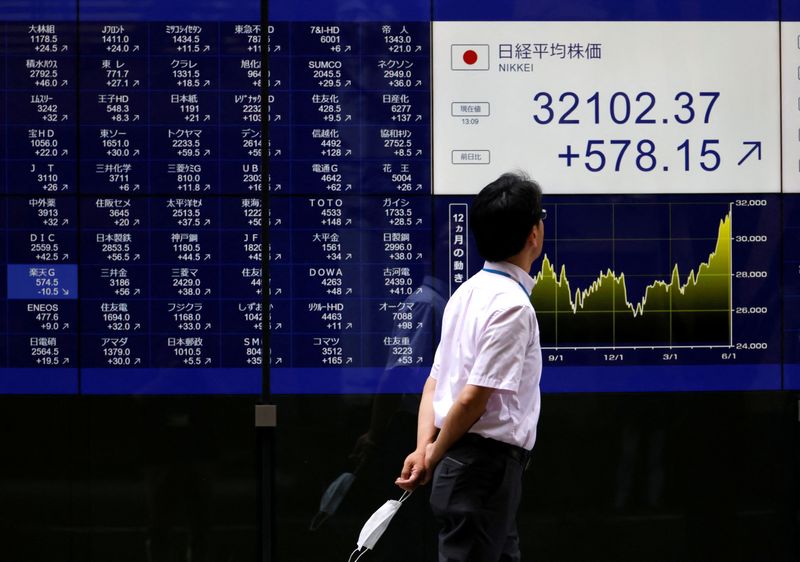By Alden Bentley
(Reuters) - A look at the day ahead in Asian markets.
U.S. payrolls and service sector data won't offer much inspiration to Asian markets this week, thanks to the ambiguous economic and Fed policy picture that churned markets on Friday, though a handful of upcoming regional economic reports and the Taiwan election on Saturday with geopolitical ramifications will grab the spotlight.
U.S. stock indexes seesawed to a small gain on Friday, even as the S&P 500 and Nasdaq posted their worst weekly showing in months, after the Labor Department reported that U.S. employers hired more workers than expected last month while raising wages at a solid clip.
Markets initially dialed back bets the Fed would start cutting interest rates in March, before the Institute for Supply Management (ISM) said that service sector employment plunged to 43.3 in December to the lowest level since July 2020 restored some of the speculation that policy makers would hike rates early in 2024.
The U.S. 10-year Treasury yield swiveled around the 4% level on the clashing views of the strength of the economy, wrapping up the day around 4.05%, while its 13.1 bp weekly gain was the largest since mid-October.
The dollar index ended little changed. The yuan ticked a bit higher against the dollar, which meshed with news that China's state owned banks were active in forex markets last week trying to contain the yuan's slide, according to four people with direct knowledge.
On Sunday, a China foreign ministry spokesperson said China will sanction five U.S. military manufacturers in response to the latest round of U.S. arms sales to Taiwan. The sanctions come a week before Taiwan's Jan. 13 presidential and parliamentary elections, which China has cast as a choice between war and peace.
Dollar/yen ended Friday up a fractional 0.02%, just enough to extend the 2024 winning streak to four days.
Bank of Japan Governor Kazuo Ueda faces pressure to end Japan's negative interest rate policy. Last week's devastating earthquake could make it harder to rev up the economy and inflation.
On Tuesday, when Japanese markets reopen from a holiday Monday, Japan's December household spending and Tokyo Consumer Price Index could feed into Nikkei and JGB trading.
Several other CPI reports are due this week, including the Australia CPI on Tuesday, China CPI Thursday, India CPI on Friday and the widely anticipated U.S. release on Thursday.
Here are key developments that could provide more direction to markets this week:
- Tokyo CPI Tuesday (December)
- Japan household spending Tuesday (December)

- South Korea unemployment rate Tuesday (December)
(This story has been corrected to fix the day of week for Japan's economic data releases to Tuesday, not Monday, and clarifies that Japanese markets were closed on Monday in paragraph 9)